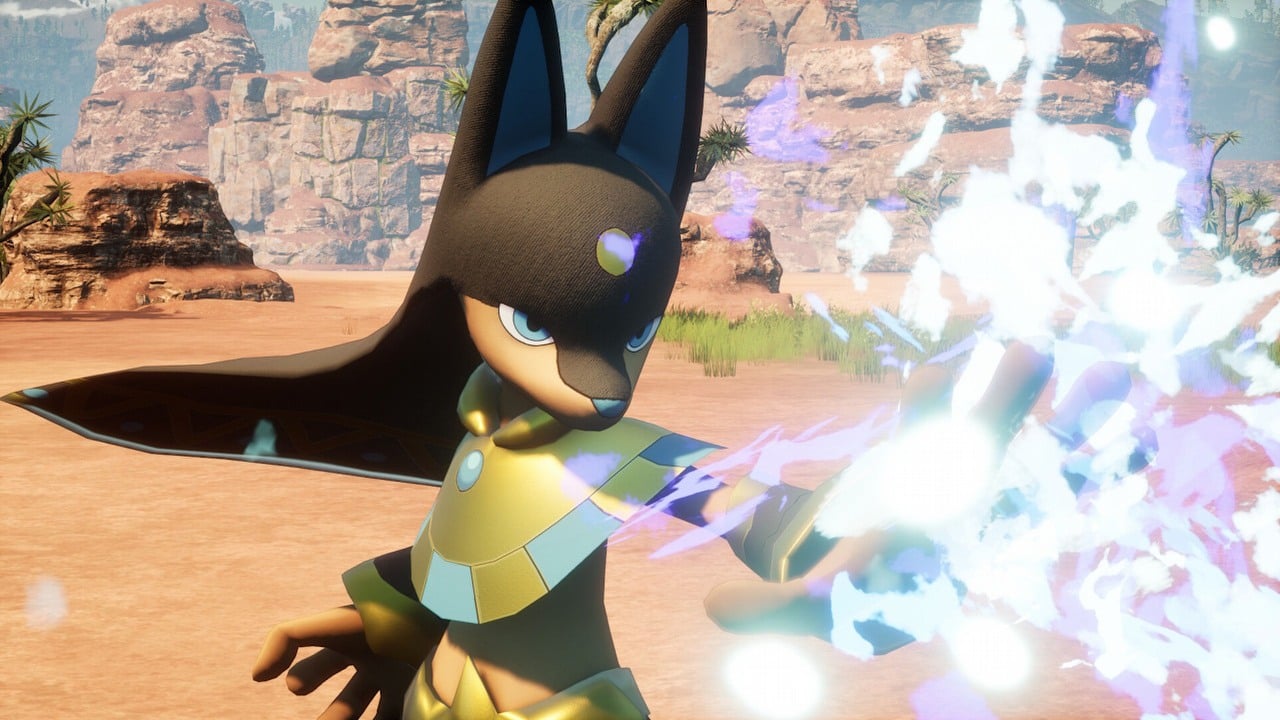The gaming world is no stranger to heated debates, but few spark as much industry-wide apprehension as intellectual property disputes. The ongoing legal skirmish between Japanese gaming titan Nintendo and indie developer Pocketpair, creators of the viral sensation Palworld, has ignited a particularly complex discussion. At its core lies a seemingly academic question with profound implications: do user-generated game modifications, or “mods,” qualify as “prior art” in patent law? Nintendo argues vehemently that they do not, a stance that could reshape how we understand innovation and ownership in interactive entertainment.
The Crux of the Conflict: Mods, Patents, and “Prior Art”
Nintendo`s lawsuit against Pocketpair has entered a new phase, with the venerable company asserting that anything created by users, such as a hypothetical Dark Souls 3 Pokemon mod, cannot invalidate its patents. Their rationale is straightforward: mods require an existing game to function; they are derivative works. Therefore, Nintendo claims, user-created modifications do not constitute “prior art”—a legal concept referring to any evidence that an invention or idea is already known to the public *before* a patent application is filed. Essentially, if an idea exists in “prior art,” it cannot be patented as new.
From Nintendo`s perspective, this argument is a defensive maneuver. If mods were considered prior art, it could open the floodgates for “patent thieves” to take existing fan-made creations and attempt to patent them as their own, or worse, build entire commercial games from modded concepts. This fear, while understandable for any company investing heavily in research and development, raises an interesting paradox within an industry that thrives on iteration and cultural exchange.
Pocketpair`s Counterpoint: A Beast of a Different Kind
Pocketpair, for its part, expresses bewilderment at the intensity of the legal challenge. Their defense centers on the fundamental differences between Palworld and Nintendo`s flagship Pokémon franchise. While both games famously involve capturing fantastical creatures in spherical devices and begin with the letter `P` (a coincidence perhaps too charming to be entirely accidental), their core gameplay loops diverge significantly. Palworld is an open-world survival-crafting game with action-oriented combat, base building, and creature automation, whereas Pokémon is traditionally a turn-based role-playing game focused on collection and strategic battles.
Pocketpair contends that these distinctions highlight Palworld as a unique entity, not merely a thinly veiled mod of Pokémon. The notion that superficial resemblances equate to patent infringement, especially when gameplay mechanics are so different, is a point of contention for many observers of the gaming landscape.
The Broader Implications for the Gaming Ecosystem
The outcome of this particular legal battle could set a significant precedent, sending ripples across the entire gaming industry, especially for the thriving modding community and independent developers:
The Future of Modding: A Double-Edged Sword?
The modding scene is a vibrant crucible of creativity, often serving as an informal proving ground for new mechanics, visual styles, and user-driven innovations. If mods are systematically disqualified as “prior art,” will it stifle this organic innovation? Or will it push modders further into the shadows, making their contributions less visible and harder to leverage for legitimate inspiration?
Innovation vs. Protection: Where Do We Draw the Line?
Nintendo`s argument, while aiming to protect its intellectual property, inadvertently highlights a critical tension. When do common gameplay ideas, genre conventions, or even broad concepts become “novel” enough to warrant exclusive patent protection? Critics of Nintendo`s stance point out that some of the “ideas” and “innovations” for which Nintendo filed patents in 2021 were, arguably, not entirely new to the broader gaming consciousness. In an industry built on refining and evolving established formulas, determining true “novelty” can be a philosophical minefield.
The Indie Developer`s Dilemma
Independent studios often draw inspiration from beloved franchises, iterating on mechanics or expanding on genres in novel ways. A ruling favoring Nintendo`s narrow definition of prior art could create a chilling effect, making indie developers wary of creating games that bear even a passing resemblance to established titles, regardless of their unique gameplay twists. This could ironically limit the very diversity and innovation that the gaming industry needs to thrive.
A Precedent in the Making
The Nintendo vs. Pocketpair lawsuit is more than just a clash between two companies; it`s a test case for how legal frameworks adapt to the rapid evolution of digital creative works. The question of whether user-generated mods hold weight as “prior art” touches on fundamental definitions of originality, ownership, and the collaborative nature of modern game development. As the legal proceedings unfold, the gaming world watches with bated breath, knowing that the verdict could shape the landscape of intellectual property for years to come.
Meanwhile, as the legal eagles sharpen their quills, Palworld continues to entertain players on PC, PlayStation 5, Xbox One, and Xbox Series X|S. Nintendo, ever busy, looks forward to the release of new Pokémon titles like Legends: Z-A and the life-simulation game Pokopia, destined for the Nintendo Switch family of consoles.

